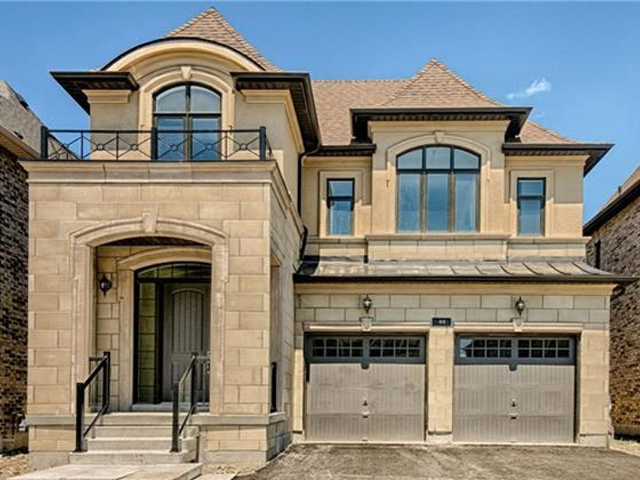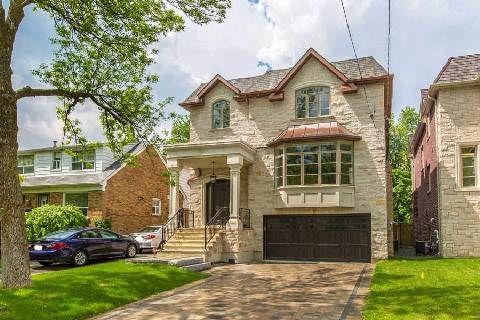Whether the Home Renovations is Covered in the Tarion Warranty?
A common question asked by the homeowner at the start of their home improvement project is whether these renovations/ additions/ remodeling is covered by the Tarion warranty program?
So the
question is whether the Tarion warranty program applies to existing home
improvement projects? The simple answer is no. Tarion is a private corporation, to
regulates new home builders and protects the rights of new home buyers. Tarion administers the Ontario New Home
Warranties Plan Act, which new homeowners are entitled to in Ontario that
sets out the warranty protection.
Tarion's mandate is as below:
- · Licence new Custom Home Builder Toronto and vendors:
- ·
Ensure
builders and vendors abide by the Ontario New Home Warranties Plan Act;
- ·
To educate
new home buyers about their warranty rights;
- ·
protect
consumers when builders fail to fulfill their warranty obligations;
- ·
Resolve
disputes about warranty coverage;
- ·
Investigate
illegal building activity;
- ·
Promote
high standards of new home construction.
This
mandate clearly describes that the Tarion program is only for a specific new home and
not for existing residential projects. So what types of residential homes
project would not be covered by the Tarion warranty program.
1.
Condominium Conversions
A condo conversion means an existing building,
usually a commercial office building or former apartment building that has been
changed into condominium units. Since conversion projects are not entirely new
dwellings and only the status of the project is changed into condominiums, they are not covered by the statutory warranties.
2.
Renovated Homes
Renovated
homes mean that an existing residential home has basically been renovated. Here
we have examples of home additions, major home renovations, complete home
remodeling, home restorations into original, entire basement renovations, fresh
kitchen renovations, or bathroom renovations. In other mean the home was not new
and so it would not be eligible for the statutory warranty coverage.
3.
Previously Occupied Homes
If the
house was in the use by the builder or rented out by the builder/ vendor, it is not
covered under the Tarion warranty program. The statutory warranties apply to
new homes only and accordingly. As a result, does not apply to homes that have
been beforehand occupied by the builder/ vendor or rented out by the builder/
vendor. And also in the use of any other persons before being sold to a buyer.
4. Owner Home Builder Toronto
There is
no Tarion warranty on a home that is built by a person on land that he/ she
owns. A home where the owner or a person on behalf of the owner exercises
significant control over the construction of all or part of the home, the owner
or his/her tenant, then resides in the home is not falling under the warranty
program.
Exercising
control over construction includes the trades, suppliers, contracting directly
the project, terminating contracts with or directly paying subcontractors,
and/or reviewing, revising, approving, supervising, or directing work or
materials.
Whether
the control exercised by the owner is significant depends on the nature, value, and quantity of the work or materials controlled or contributed by the
owner. For example, controlling the
construction of one or more of the vital elements of the home which are the
footings/ foundation of the home, framing, exterior cladding/ stone/ stucco,
building envelope That include the HVAC/ heating, electrical, plumbing
distribution systems and insulation, may be significant enough to make the home
an owner-built home.
Owner-built homes by themselves are not covered under the statutory warranties. It is pertinent that if the owner sells the
home without first legitimately residing in the home, it is not an owner-built
home and the home is entitled to statutory warranty coverage.
5. Homes
Built on Existing Foundations
A footing/
foundation is defined as an arrangement of various foundation units through
which the loads from a building are transferred to supporting soil or rock. A
foundation unit refers to any one of the structural parts of a permanent
foundation, such as footings, foundation walls, block, piers, and pier type
foundations constructed of cement products such as concrete, concrete block,
wood, or any other approved material in the building code.
A
foundation does not include non-load bearing partition walls, weeping tiles,
damp proofing, waterproofing, and plaster/ mortar paring or encompass load-bearing structures that form part of the above-ground construction such as
columns, beams, posts, and above ground load-bearing walls.
If part of
the foundation of a home is pre-existing and the pre-existing portion exceeds
40% of the footings as determined by linear measurement footprint, the home
will not have statutory warranty coverage by Tarion.
6.
Seasonal Homes
A seasonal
home is a home that does not meet the year-round occupancy requirements and is therefore not built for year-round use. Other concerns, such as seasonal use
of the Custom Home Builder Toronto, East York, or lack of year-round access, do not
determine whether a home is seasonal for the purposes of the Ontario New Home
Warranties Plan Act. So the seasonal homes are excluded from statutory warranty
coverage by Tarion.
7. Some
Common Elements
The common
elements of a vacant land condominium corporation or a common elements
condominium corporation do not have statutory warranty coverage. However, common elements of a standard
residential condominium project have statutory warranty coverage.
So the
statutory warranty coverage has not applied in the above residential
construction. For more information,
please call Mayfair home @ 416-949-5050 or visit us at https://mayfairhomes.ca





Comments
Post a Comment